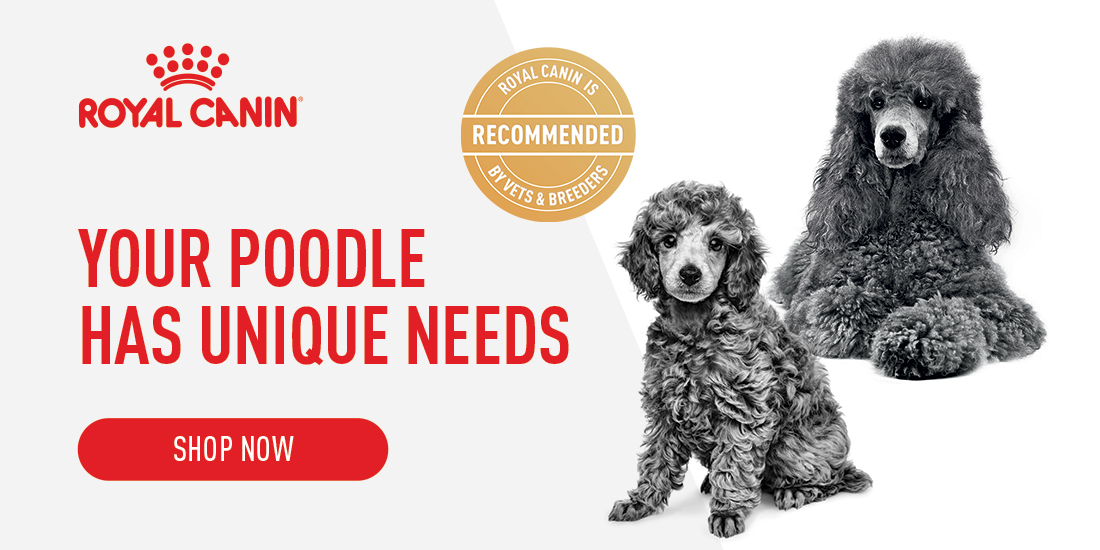Dog Breed
Miniature Poodle
Friendliness
Exercise Needs
Health Issues
Barking Tendencies
Grooming Needs
Shedding Level
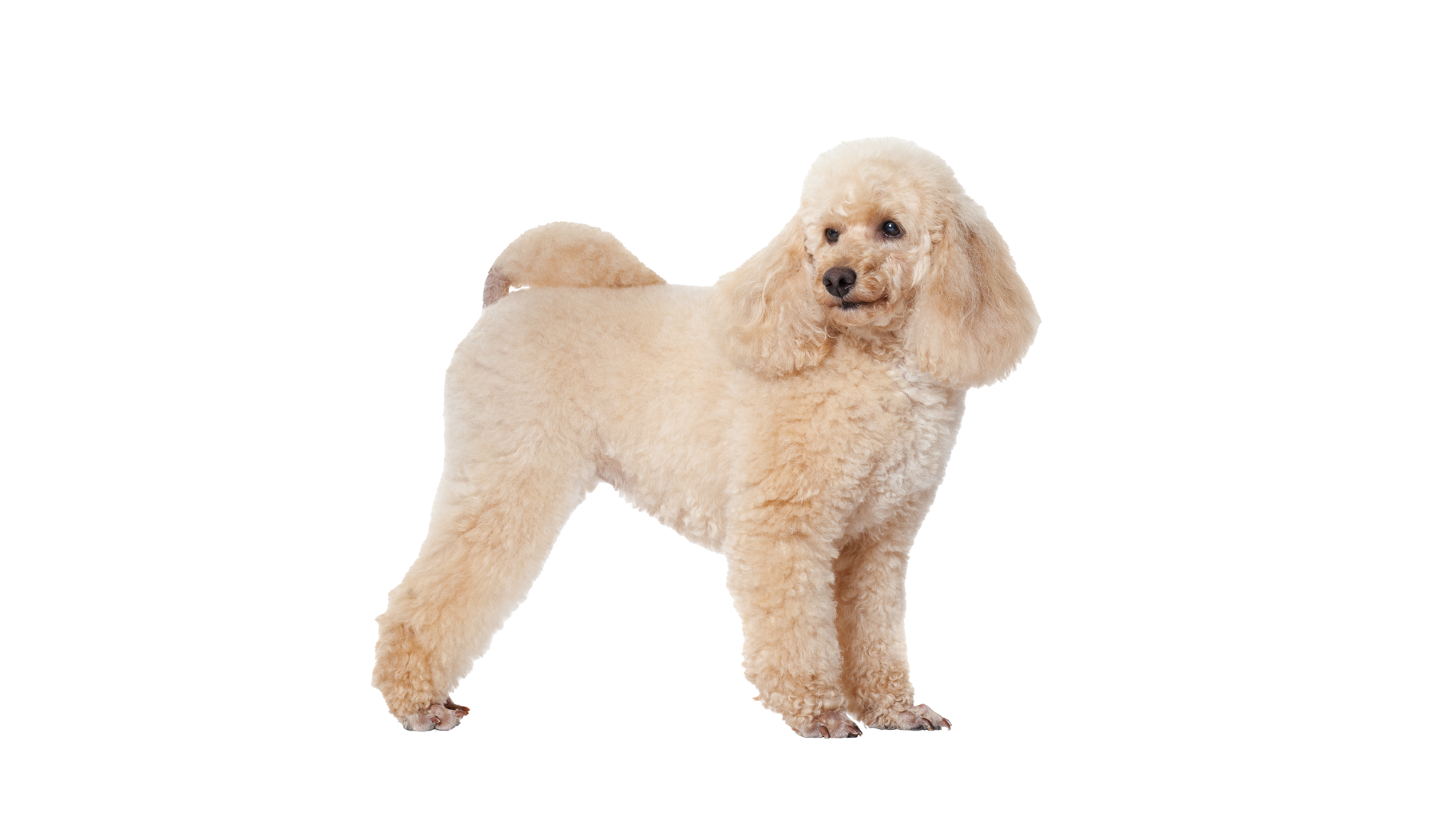

Mid-sized mate
These smart, sporty dogs are surprisingly active and energetic. Bred to be water dogs and to hunt ducks both in and around water, they love nothing more than outdoor adventures. Running, walking, swimming, playing endless games of fetch - they thrive on it all, especially when they’re by your side.
Imagine a Standard Poodle shrunk a little and you have a Miniature Poodle. Although classed as non-sporting dogs, Miniature Poodles are high energy dogs that are hardier than their traditional fancy haircuts might suggest.
Caring for your Miniature Poodle
Nutrition
Choosing the right food
Every dog is unique. From the small, flat-faced Pug to the obesity-prone Labrador Retriever. ROYAL CANIN® Breed Health Nutrition is tailor-made to address the unique needs of pure breed dogs. These breed specific formulas benefit from the latest ROYAL CANIN® research on the selection of the best protein sources, unique nutrients and tailor-made kibbles.
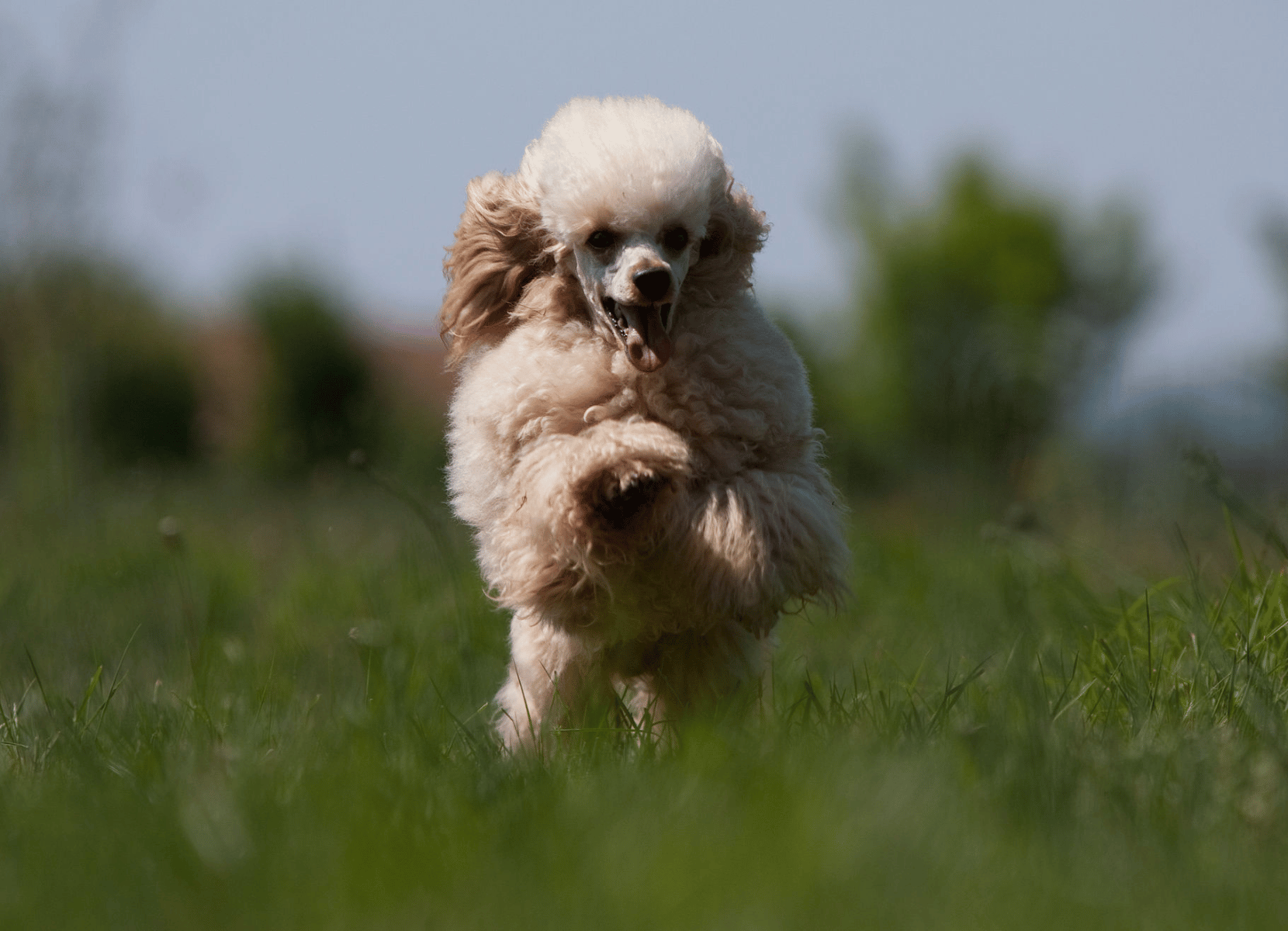
Exercising your dog
The Miniature Poodle may surprise you with their high energy levels. Natural born athletes, Miniature Poodles can turn their paw to any form of exercise, especially if it’s outdoors and involves walking, running or swimming.
Bred to be hunting dogs, they have an inbuilt impulse to retrieve. You can entertain them for hours with games of fetch. As water retrievers, try playing fetch (with toys designed to float!) in or near water so they can stretch their water wings.
Miniature Poodles need around one hour of exercise a day, which will include a walk and trips to the dog park to stretch their legs and meet other doggy mates. It also might include time playing in the garden.
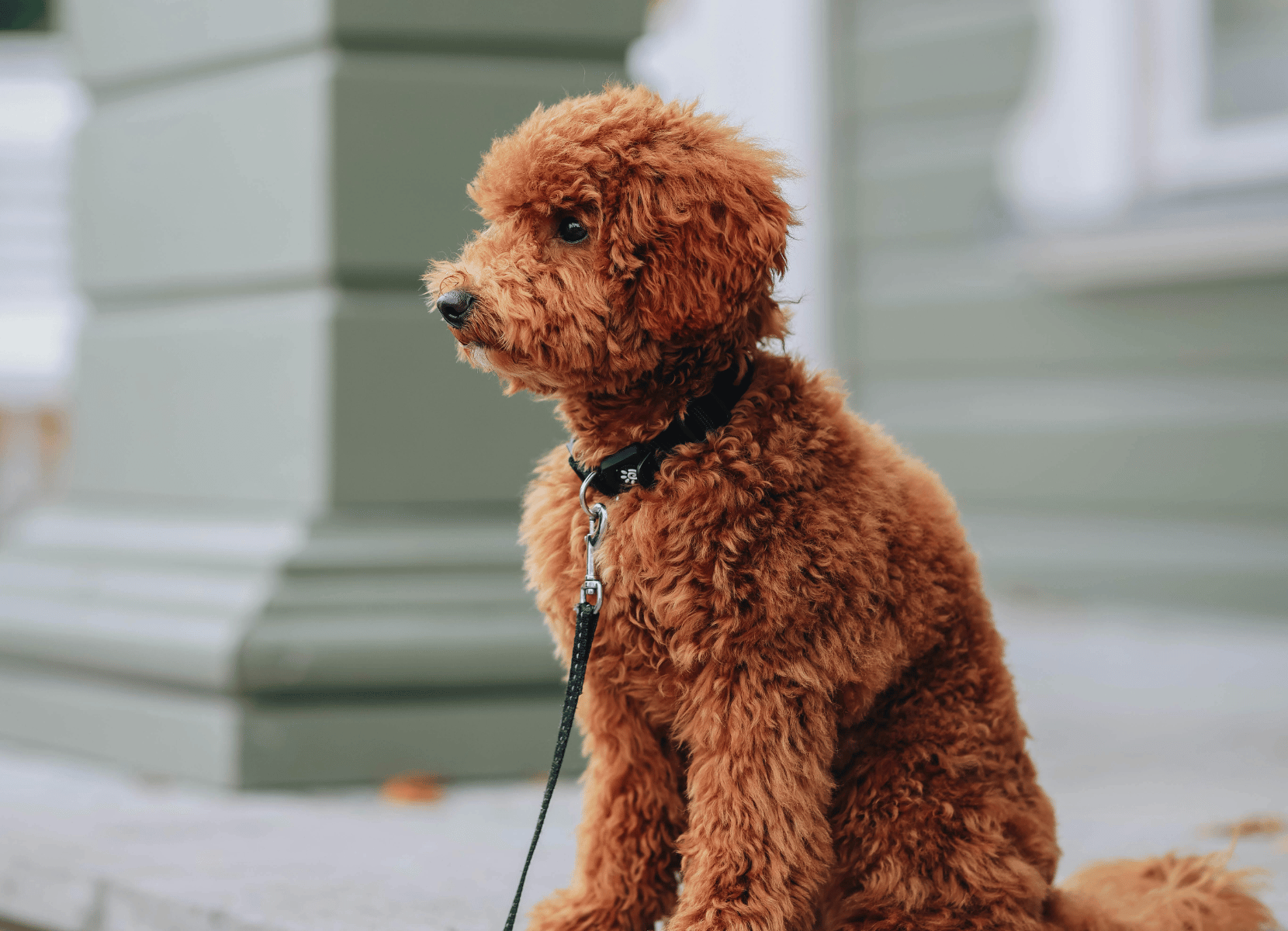
Training your Miniature Poodle
Miniature Poodles are highly intelligent dogs that have a love of learning. They’re always up for learning new tricks which makes training them a breeze.
Throughout their lives, try to spend around 20 minutes every day working on new tricks and commands and giving them the opportunity to show off their skills.
People-orientated, Miniature Poodles also love to please their humans and spend time with them. They respond well to fun, positive, consistent training sessions.
Once they’ve mastered the basics, consider enrolling your Miniature Poodle in dog classes, including agility, to keep them mentally engaged and well socialised.
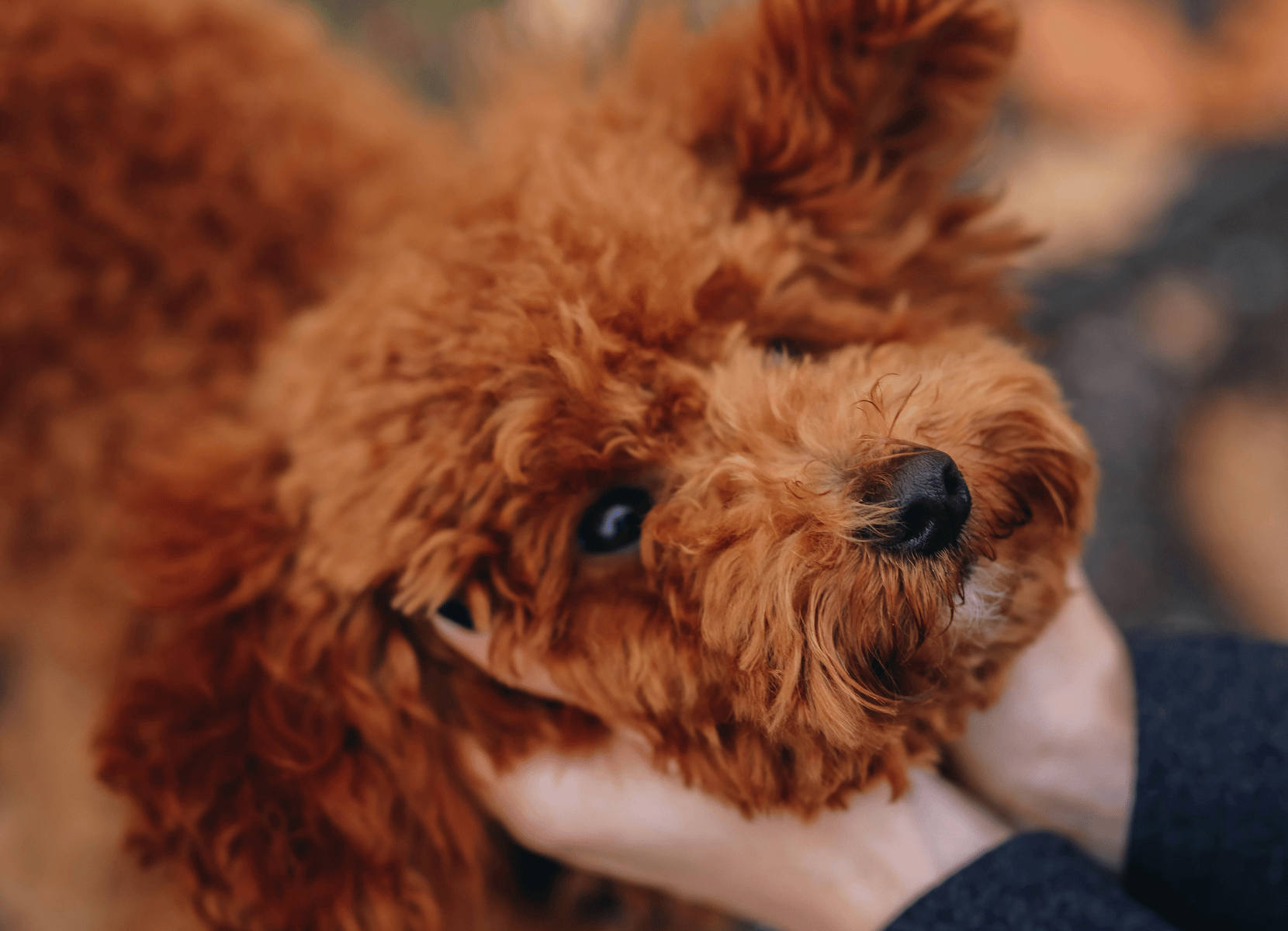
Your dog's health
By recognising health problems in Miniature Poodles early, you can seek advice and treatment from a veterinarian.
Reduce the risk of health problems by purchasing a puppy from a responsible breeder. Always inspect breeding facilities and breeding dogs, and never buy from a distant online seller.
Health Issues to watch out for:
Joint Problems
Eye Issues
Skin Disease
Hypothyroidism
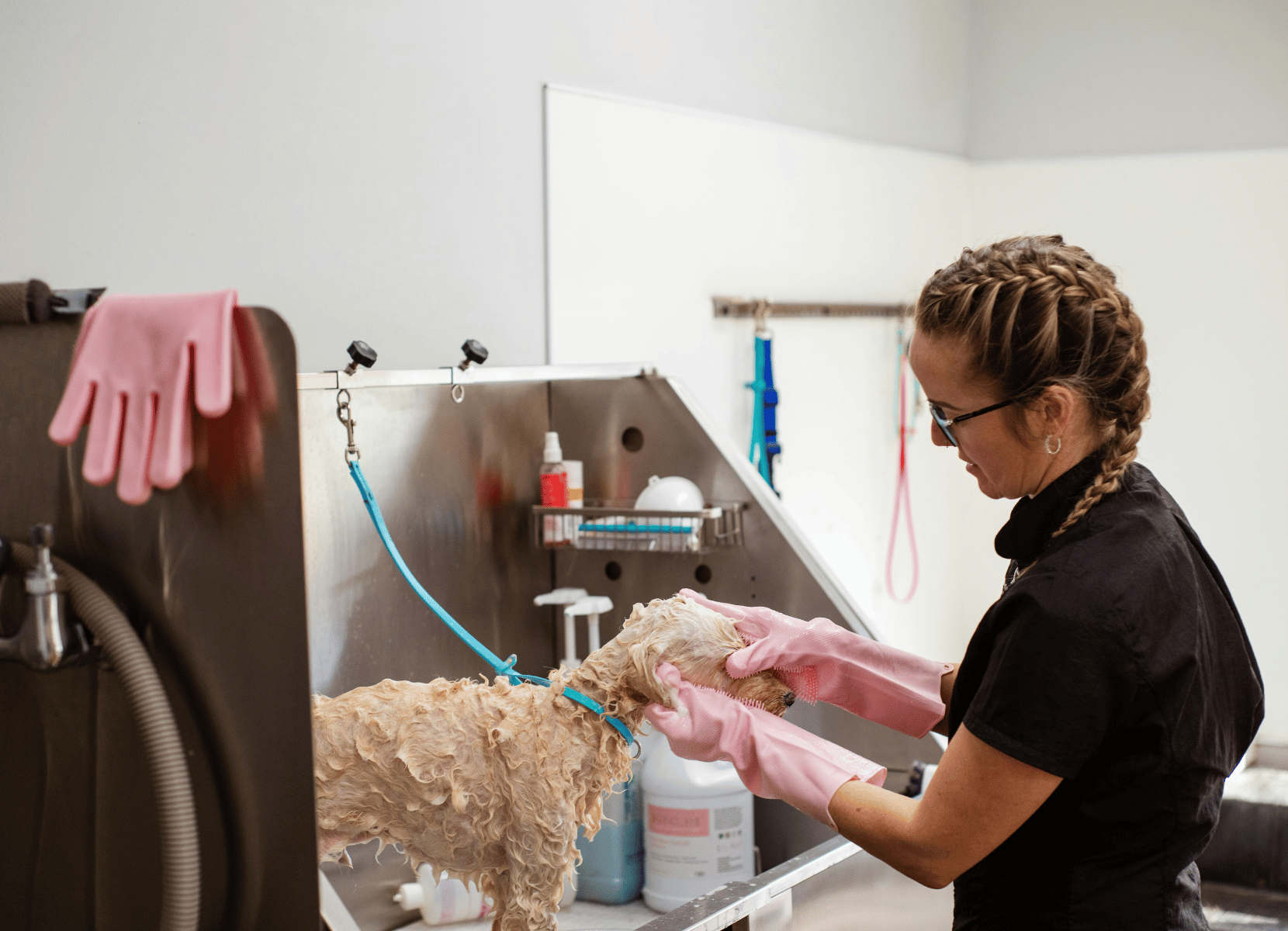
Grooming your dog
Miniature Poodles need to be brushed every single day, otherwise their fur will curl in on itself. Without daily brushing, their hair is prone to matting, right down to the roots. Not only can this cause skin infections, but it usually needs to be shaved off.
As well as brushing, a Miniature Poodle needs a bath and haircut every 4-6 weeks. You can do this clipping and trimming at home yourself or take them to a professional groomer. Make it a doggie spa day and trim their nails at the same time.
Also check their wide, folded ears - a Miniature Poodle’s hair will grow inside their ear canal, trapping wax and dirt so give them a gentle clean. Finally, 2-3 times a week brush their teeth.
Key characteristics of Miniature Poodles
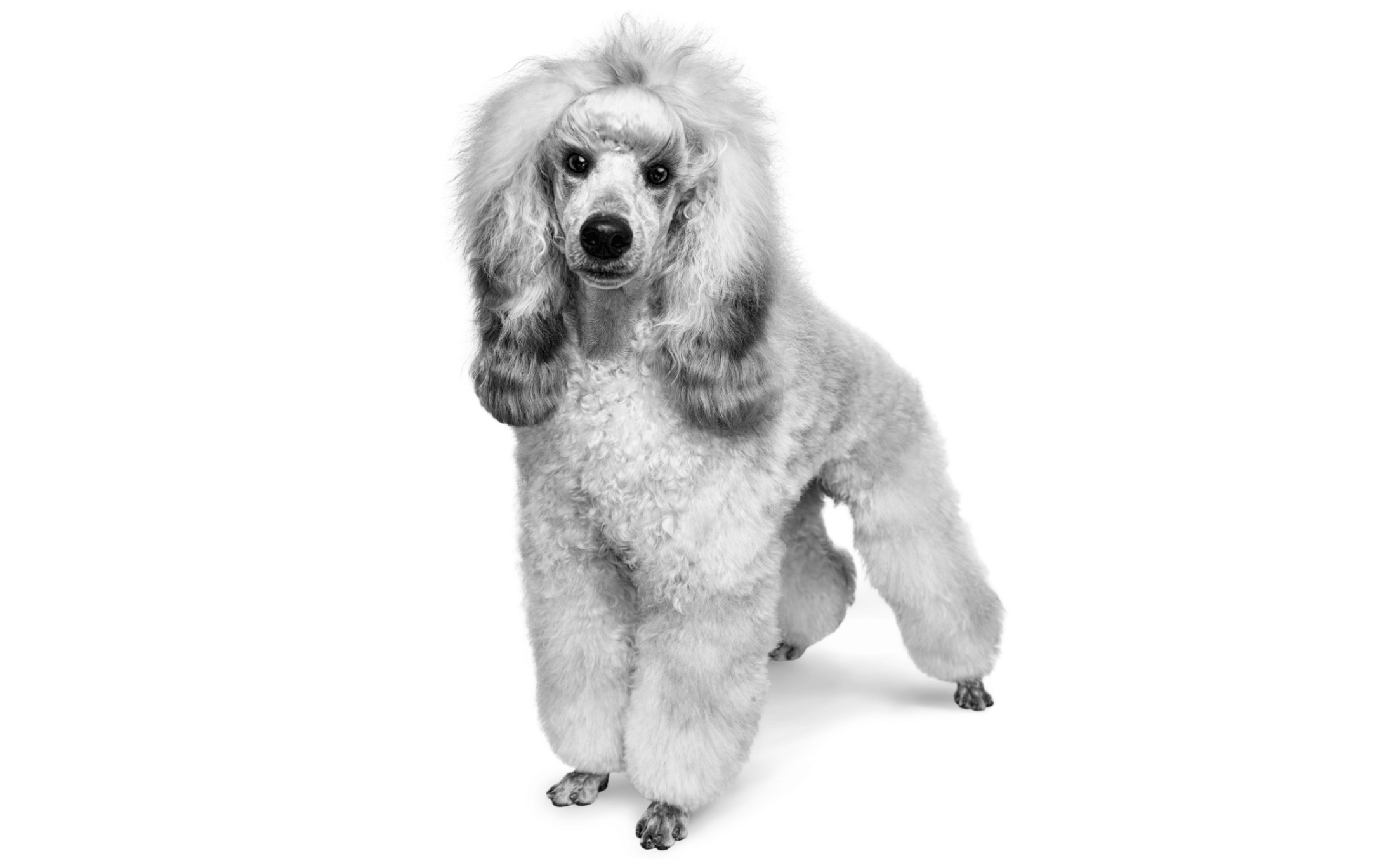
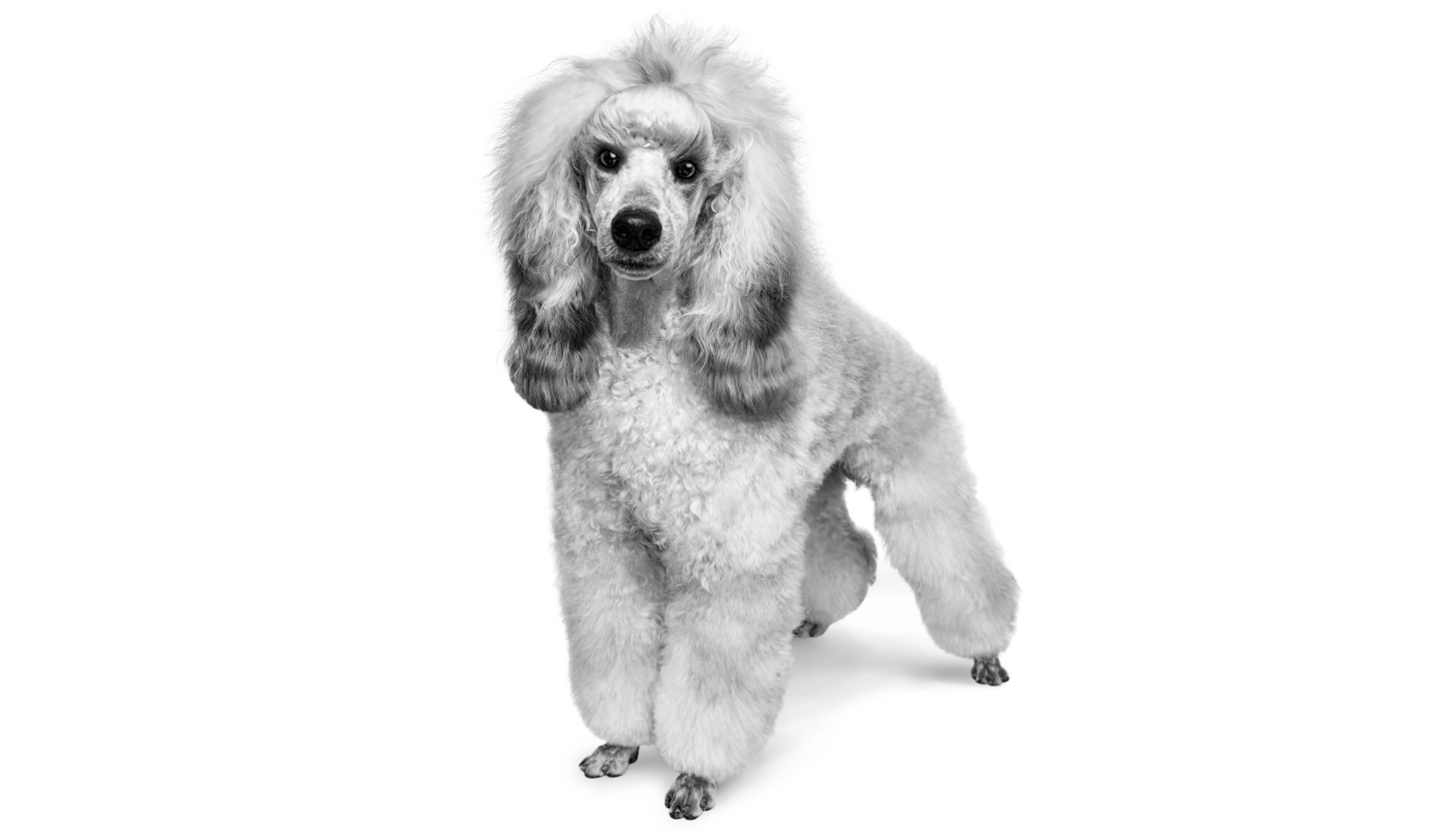
Miniature Poodle FAQs
Miniature Poodles are known for their intelligence, elegant appearance, and cheerful energy. Here are answers to some of the most frequently asked questions about the breed — covering lifestyle, coat care, allergies and more.
Are Miniature Poodles hypoallergenic?
Miniature Poodles are one of the most popular hypoallergenic dog breeds. While no breed is entirely allergen-free, their curly, non-shedding coat produces less dander and can be a better option for allergy-sensitive households.
What’s the difference between Toy, Miniature, and Standard Poodles?
The main difference lies in their size. Toy Poodles are under 25 cm tall, Miniature Poodles are 25–38 cm, and Standard Poodles are over 38 cm. All three types share similar intelligence, trainability, and coat types.
Can Miniature Poodles live in apartments?
Yes, Miniature Poodles can adapt well to apartment living as long as they get daily exercise and mental stimulation. Their people-oriented nature also means they thrive in homes where they’re not left alone for long.
Are Miniature Poodles good for first-time dog owners?
Miniature Poodles are an excellent choice for first-time dog owners. They’re intelligent, eager to please, and relatively easy to train. Just be prepared to commit to regular grooming and enrichment to keep them at their best.
Do Miniature Poodles get along with other pets?
Yes, Miniature Poodles typically get along well with other dogs and household pets, especially when socialised early. Their friendly and adaptable nature makes them a good fit for multi-pet families.
These FAQs help answer some of the most common questions about Miniature Poodles — from their allergy-friendly coat to their suitability for apartment living and first-time pet parents. With the right care, they’re loyal, loving companions for families of all shapes and sizes.





